Peptide Publications Archive

Green Peptide Synthesis
Wellings, Meldal, and Wade Groups
Researchers supervised by Dr. Donald A. Wellings, Nobel Laureate Professor Morten Meldal, and Professor John D. Wade at the University of Melbourne, published in Nature …
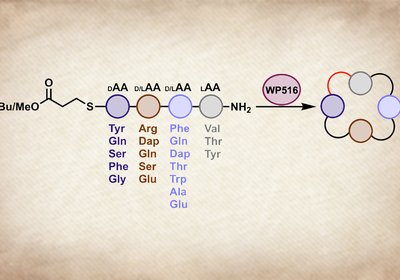
Tetrapeptide Cyclase
Parkinson Lab
Cyclic tetrapeptides occupy a tantalizing corner of chemical space. Head-to-tail macrocyclization eliminates the charged termini that limit membrane permeability, while the constrained
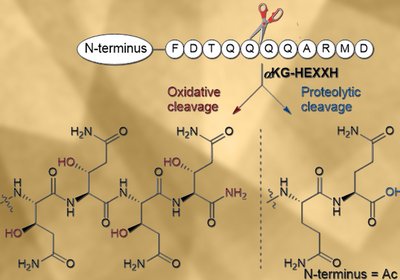
Oxidative Backbone Cleavage
van der Donk Lab
Researchers in the van der Donk Group at the University of Illinois Urbana-Champaign, published in the Journal of the American Chemical Society, used genome …
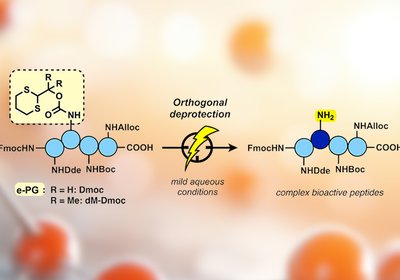
Electrochemical Deprotection
Malins Lab
Protecting group chemistry sits at the heart of peptide synthesis. Every amide bond formed on a growing chain demands that other reactive side chains stay …
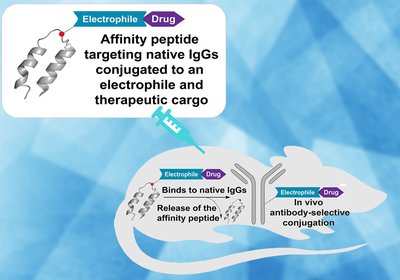
Antibody Drug Painting
Pentelute Group
Researchers in the Pentelute Group at the Massachusetts Institute of Technology, collaborating with several other institutes and groups at MIT, published in Chem, have …
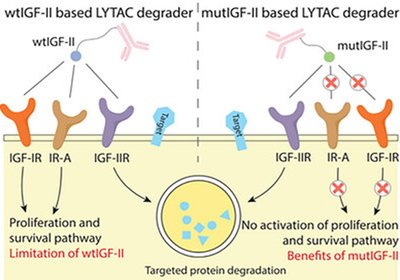
Selective Protein Degraders
Tang Group
Researchers in the Tang Group at the University of Wisconsin-Madison, in collaboration with colleagues at NovoNordisk, published in Advanced Science, have engineered an insulin-like …
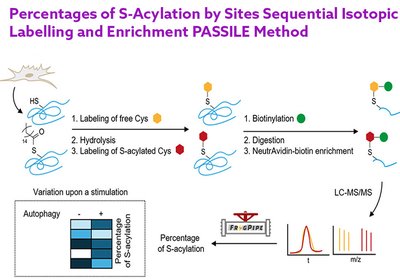
Quantifying S-Acylation
Thinon Group
Researchers in the Emmanuelle Thinon Group at the University of Bordeaux, published in ACS Chemical Biology as part of the special issue "Lipids and Lipidation," …
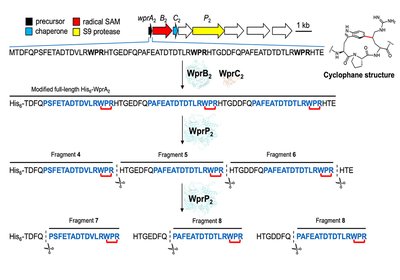
Uniform Cleavage
Phan Lab
Researchers in the Phan Group at the Latvian Institute of Organic Synthesis, published in Communications Chemistry, have characterized a serine protease that cleaves precursor …
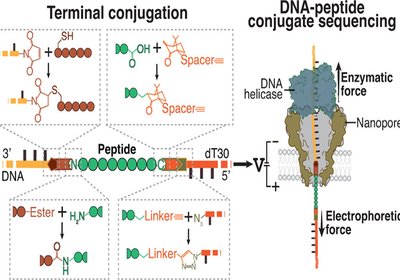
Threading Peptide Sequences
Dekker & Albada Labs
Researchers in the Dekker Group at Delft University of Technology, in collaboration with Bauke Albada at Wageningen University, published in the Journal of the American …
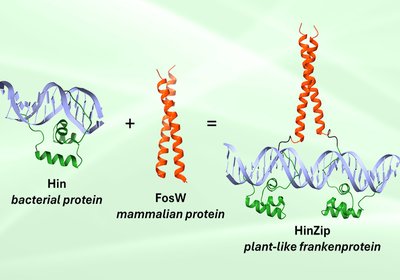
Frankenprotein Precision
Shin Lab
Researchers in the Shin Group at Chapman University, published in ACS Synthetic Biology, drew inspiration from an unusual source: the homeodomain-leucine zipper transcription factor …
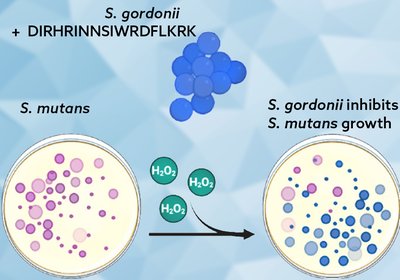
Bacterial Crosstalk
Bertucci & Tal-Gan Labs
In a study published in ACS Infectious Diseases, researchers from the Tal Gan Group at the University of Nevada at Reno, and The Bertucci …
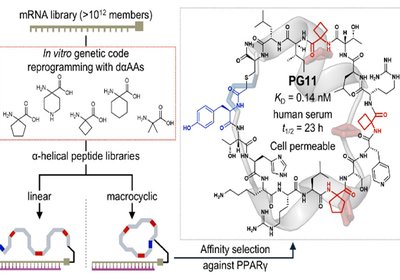
Helical Peptide Discovery
Suga and Katoh Labs
A team led by Hiroaki Suga and Takayuki Katoh at the University of Tokyo extended their engineered tRNA system, tRNAPro1E2, to incorporate five achiral dαAAs …
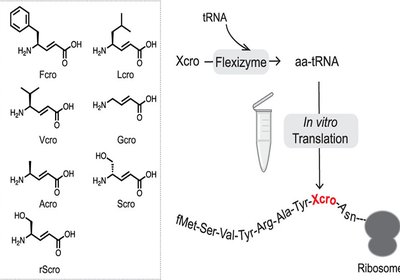
Ribosomal γ-Amino Acids
Suga Lab
Researchers in the Hiroaki Suga Group at the University of Tokyo hypothesize in the Journal of the American Chemical Society, that the conformational constraint …
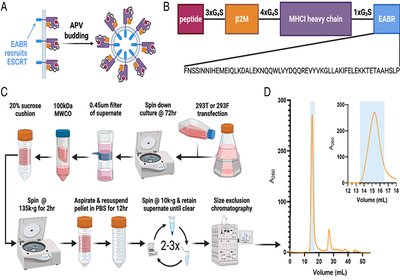
Budding Immunity
Mayo Group
Immune cells naturally release extracellular vesicles studded with peptide-MHC complexes that can orchestrate immune responses, either directly stimulating T cells or transferring their cargo to …
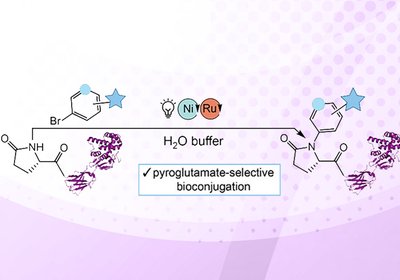
Pyroglutamate Labeling
Ball Lab
Scientists in the laboratories of Professors Zachary Ball and Laura Segatori at Rice University have developed a photoredox catalysis method that enables site-selective modification of …
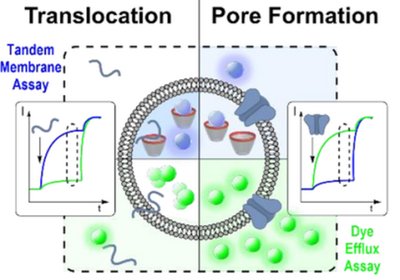
Mapping Membrane Activity
Hennig & Nau Labs
Cell-penetrating peptides and antimicrobial peptides both interact with lipid membranes, but with fundamentally different outcomes. Cell-penetrating peptides slip through membranes while leaving them largely intact, …
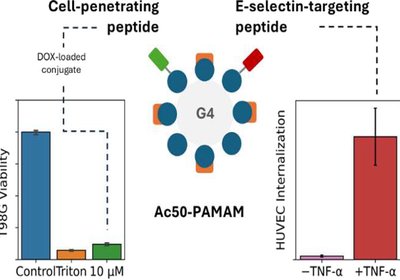
Dual Targeting Dendrimers
Alderete & Jiménez Labs
Tumor blood vessels differ from healthy vasculature in ways that drug developers can exploit. Endothelial cells lining tumor vessels overexpress E-selectin, a glycoprotein normally involved …
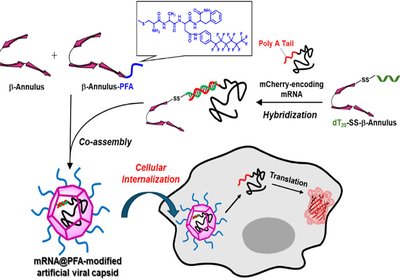
Fluorinated Viral Mimics
Matsuura Lab
Messenger RNA therapeutics have transformed medicine, from vaccines against infectious diseases to emerging applications in cancer immunotherapy and genome editing. Unlike DNA-based treatments that require …
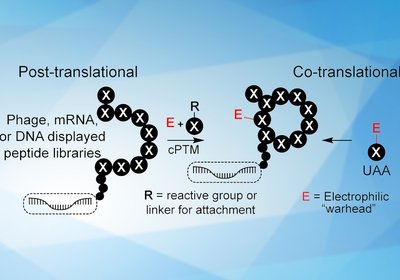
Covalent Library Design
Derda Group
Researchers in the Derda Group at the University of Alberta, published in Biochemistry, have surveyed the emerging field of covalent genetically-encoded libraries for discovering …
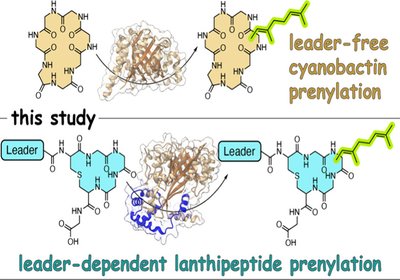
Leader-Dependent Prenylation
Agarwal Lab
Lipidation of macrocyclic peptides represents a pharmaceutically important chemical transformation. Adding lipid groups to peptides can enhance antibiotic activity, alter membrane transport properties, and improve …
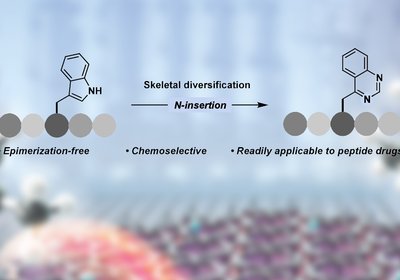
Tryptophan Transformation
Grob and Morandi Labs
A collaboration between the laboratories of Professor Bill Morandi in the Laboratorium für Organische Chemie and Dr. Nathalie Grob in the Institute of Pharmaceutical Sciences, …
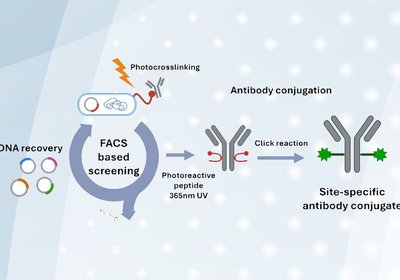
Evolved Photo-Cross-Linkers
Yoo & Kim Labs
Antibody conjugates represent a cornerstone of modern therapeutics, diagnostics, and imaging. By attaching payloads such as cytotoxins, fluorophores, or radionuclides to immunoglobulins, researchers can harness …
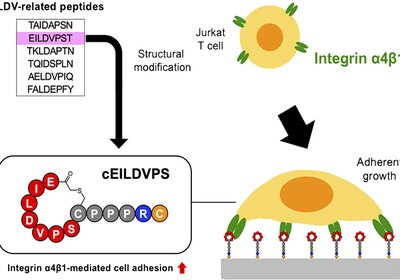
Cyclic Cell Anchors
Yamada Group
Researchers in the Yamada Group at Tokyo University of Pharmacy and Life Sciences, published in Biochemistry, have systematically characterized LDV-derived peptides as cell-adhesive molecules …
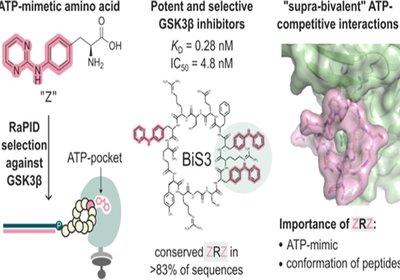
Supra-Bivalent Inhibitors
Sengoku and Suga Labs
A collaboration between the laboratories of Professor Hiroaki Suga at the University of Tokyo and Professor Toru Sengoku at Yokohama City University has developed a …